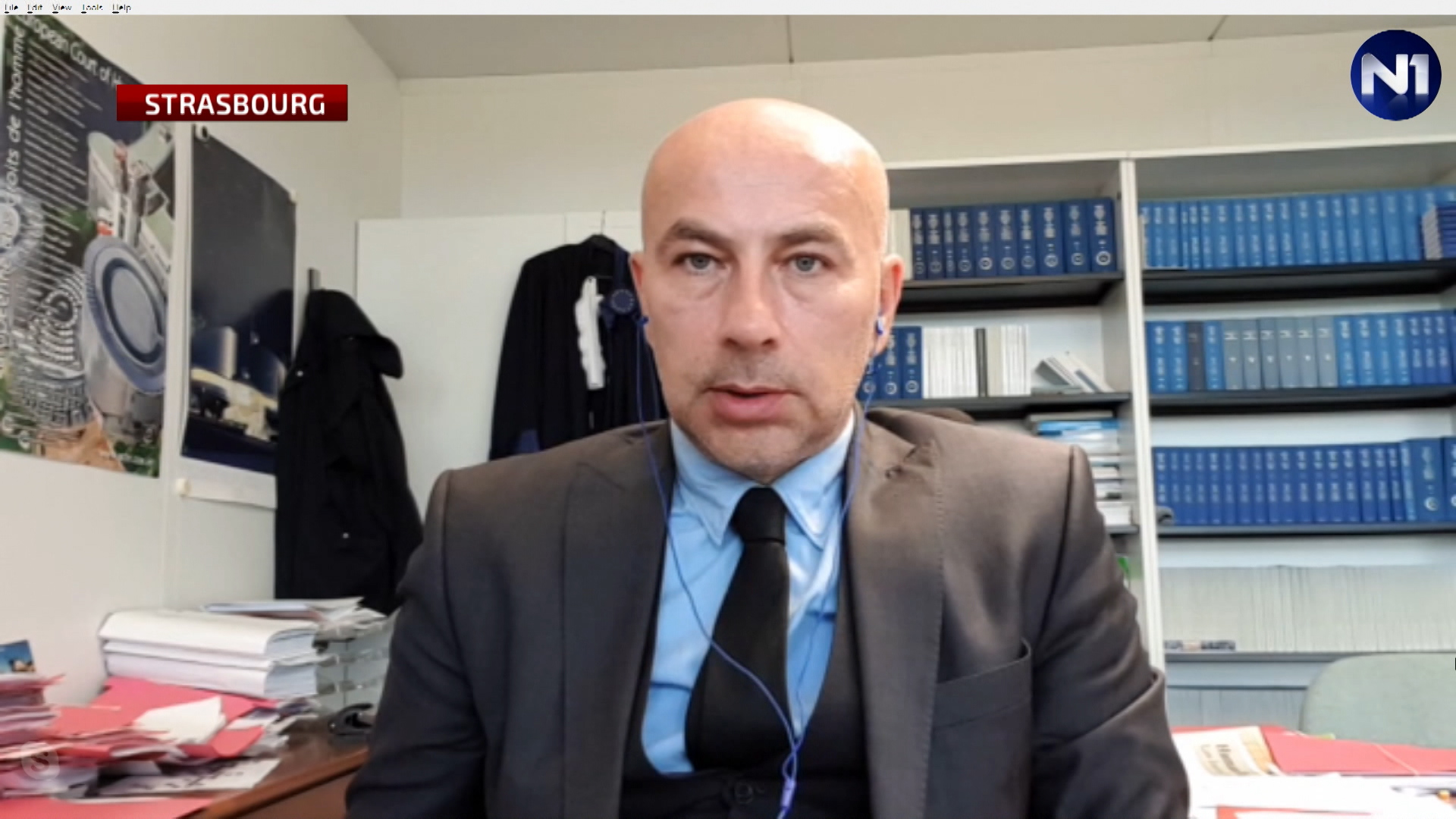
The problem with Bosnia’s judiciary lies not with the system but rather with the people who are serving important functions in it, a judge at the European Court of Human Rights, Faris Vehabovic, told N1 on Friday, commenting on the latest allegations against the head of Bosnia’s top judicial institution.
The Istraga.ba investigative journalism portal released an audio recording on Thursday which allegedly features the head of Bosnia’s High Judicial and Prosecutorial Council (HCP), Milan Tegeltija, discussing the possibility of naming the sister of former HJCP member, Miljana Buha, to the post of judge in a Banja Luka court.
The HJPC is the institution that appoints judicial officials in Bosnia. According to Istraga.ba, Buha insisted on the appointment of her sister, Sanja Cegar, and Tegeltija can allegedly be heard saying that the "tactic" should be left to him.
Both Tegeltija and Buha denied the allegations in statements for N1, arguing that the recording proves the opposite - that they agreed such an appointment would be a conflict of interest.
Vehabovic said that if such a recording would have emerged in any democratic European state, the official involved would be out of office by the next day.
However, he said that he does not expect that to happen in Bosnia.
“Options exist, but it’s questionable how realistic they are,” Vehabovic said, adding that the office Office of the Disciplinary Counsel said last year, when similar allegations against Tegeltija emerged, that he can not be prosecuted while he is serving the post.
Vehabovic explained that according to the practice of the European Court, recordings obtained by journalists, even in situations when the parties involved are unaware that they were being recorded, are considered “recordings that serve to express their freedom of expression for the purpose of their work.”
“Journalists were even allowed to record secretly and that is in accordance with the (European) Convention, contrary to what Tegeltija claims in his articles in which he argues that it is illegal. Something may be illegal, but that same illegal thing may be in accordance with the Convention, which is above the law," he said.
Vehabovic stressed that Bosnia’s judiciary needs staff reform.
“The problem is not that much in the system, of course, it could be repaired and improved and it should be, but above all, I think that the problem here is with people,” he said, arguing that even if the best system possible is in place, having the wrong people serving functions in it would ruin it.
Bosnia’s top judicial institution needs a “deep clean-up” as soon as possible, Vehabovic said, pointing out that the situation with the justice system is one of the reasons for the massive emigration from Bosnia.
“It’s not that much of an economic issue, but an issue of hopelessness in a situation where there is ‘us’ and ‘them’,” he said, arguing that the courts in Bosnia are willing to punish “ordinary citizens” for any crime while leaving officials who “steal public funds” unpunished.
“This is why people are leaving (Bosnia) and the blame for such a situation lies above all with the HJPC and people who obviously don’t want any good for the system, or the country,” he said.
Kakvo je tvoje mišljenje o ovome?
Učestvuj u diskusiji ili pročitaj komentare





 Srbija
Srbija
 Hrvatska
Hrvatska
 Slovenija
Slovenija







